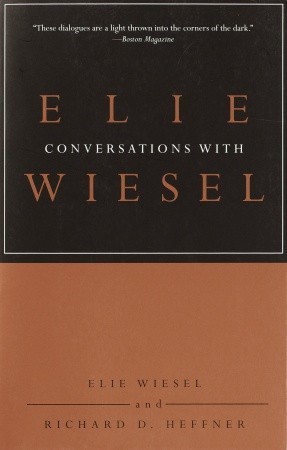
Conversations with Elie Wiesel is a far-ranging dialogue with the Nobel Peace Prize-winner on the major issues of our time and on life’s timeless questions. In open and lively responses to the probing questions and provocative comments of Richard D. Heffner—American historian, noted public television moderator/producer, and Rutgers University professor—Elie Wiesel covers fascinating and often perilous political and spiritual ground, expounding on issues global and local, individual and universal, often drawing anecdotally on his own life experience. We hear from Wiesel on subjects that include the moral responsibility of both individuals and governments; the role of the state in our lives; the anatomy of hate; the threat of technology; religion, politics, and tolerance; nationalism; capital punishment, compassion, and mercy; and the essential role of historical memory. These conversations present a valuable and thought-provoking distillation of the thinking of one of the world’s most important and respected figures—a man who has become a moral beacon for our time.
Author

Eliezer Wiesel was a Romania-born American novelist, political activist, and Holocaust survivor of Hungarian Jewish descent. He was the author of over 40 books, the best known of which is Night, a memoir that describes his experiences during the Holocaust and his imprisonment in several concentration camps. Wiesel was awarded the Nobel Peace Prize in 1986. The Norwegian Nobel Committee called him a "messenger to mankind," noting that through his struggle to come to terms with "his own personal experience of total humiliation and of the utter contempt for humanity shown in Hitler's death camps," as well as his "practical work in the cause of peace," Wiesel has delivered a powerful message "of peace, atonement and human dignity" to humanity. On November 30, 2006 Wiesel received an honorary knighthood in London, England in recognition of his work toward raising Holocaust education in the United Kingdom. http://us.macmillan.com/author/eliewi...